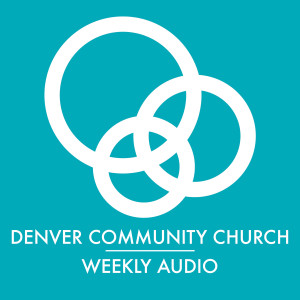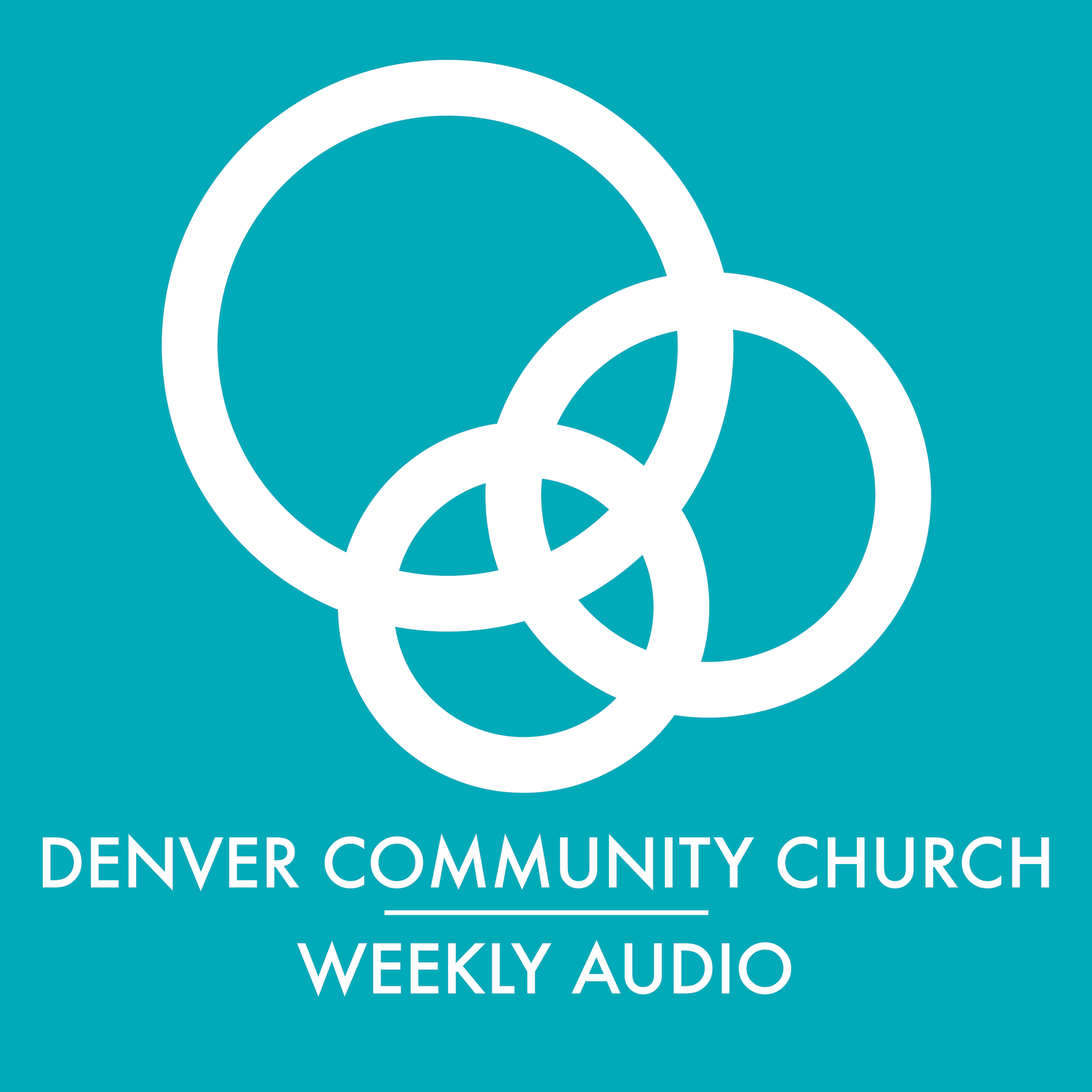Episodes

Sunday Aug 22, 2010
August 22, 2010: Getting Dunked – Michael Hidalgo
Sunday Aug 22, 2010
Sunday Aug 22, 2010
The first character we meet in Mark’s Gospel is a strange fellow. John the Baptizer. He is preaching about repentance and the forgiveness of sins. He is dunking them in the waters of baptism. Ultimately he is preparing the way for someone much greater than himself.
Before we get too far … we need to ask, “What are people ultimately repenting of?” “What have they done that is so bad that they need forgiveness?” “Is this personal or private?” It seems that there is some sort of conversion happening in the land of Israel. People are moving from one way of life into another way of living.

Sunday Aug 08, 2010
August 8, 2010: The Incompatible Kingdom – Michael Hidalgo
Sunday Aug 08, 2010
Sunday Aug 08, 2010
If you were a Roman citizen, you would not have wanted to be caught with this book. Just the opening words demand that we pay homage to Jesus. Moreover, pay homage to Jesus alone, and no one else. Because this is what the kingdom asks of us. It begs allegiance – which by nature is exclusive.
The kingdom is unlike any kingdom, nation, or empire of this world. Jesus himself said, “My kingdom is not of this world.” God has allowed humankind to establish structures, construct democracies, monarchies, and all sorts of structures … but the kingdom remains separate and cannot be co-opted by any one group of people.

Sunday Aug 01, 2010
August 1, 2010: A New Beginning – Michael Hidalgo
Sunday Aug 01, 2010
Sunday Aug 01, 2010
Mark begins his gospel by using the words “beginning,” “gospel,” and “Christ.” This is already bound to be a best seller. Mark uses words to the Romans that any would have been familiar with, but in a Roman context – words that were all used of Caesar.
But Mark is telling a different story. So we ask, Just what is this good news? Is Christ more than a surname for Jesus? And why is this the beginning? What did Jesus come to start? The Church? Or was he just reforming Judaism?
We will explore these questions and more as we dive into the deep end right away. Our goal in this initial teaching will be to understand just what Jesus was up to, and what his movement was about. Ultimately asking, “What was the good news about and how do we hear it, speak it, and live it today?”
The good news of Jesus was about the radical availability of his kingdom to all people. Anyone can enter his kingdom. This was not a place that was reserved for the best, brightest, and the most talented. The good news was present in Jesus himself – who lived out the kingdom ethos and ideal in everything he did.
He came to the poor, the oppressed, and the “sick” … in him we see that the Kingdom is for everyone. We also see that the invitation into the kingdom is to be a part of something, which means both receiving and giving. Because in the kingdom we both find healing and extend healing. We both find hope and give hope. We both discover freedom and proclaim freedom.

Sunday Jul 25, 2010
July 25, 2010: It's Still Moving – Michael Hidalgo
Sunday Jul 25, 2010
Sunday Jul 25, 2010
So many people have recently said, “I want to be an Acts 2.42 type of group.” But few speak about what caused the group to be what they were in those verses. To understand this, we should look back to the verses that come before in – verses 1-41. The story is amazing. A bunch of people are gathered together – really just doing what they have always done – and suddenly the Spirit comes on them.
The church is a movement of people who are striving to do the will of God in our world. Yet, this movement begins with a movement of the Holy Spirit. When the Spirit moves amazing things happen; things beyond their control. The result? 3,000 added to their number. If we attempt Acts 2.42-47 without the first 41 verses – we will in the end be doing everything in our own power. That is a good way to die.

Sunday Jul 18, 2010

Sunday Jul 11, 2010
July 11, 2010: Who Said Anything About Money? – Dave Neuhausel
Sunday Jul 11, 2010
Sunday Jul 11, 2010
What do you have that you are willing to sell? What do you have that truly belongs to everyone and anyone who wants it or needs it? The truth is, not too many of us want everyone to have claim to our stuff. It is difficult sharing and giving … at least when we focus on our stuff or our account balance.
But what if giving had nothing to do with how much we had, but more to do with our heart? What if we were willing to give anything and everything – because our hearts looked more like the heart of Jesus?

Sunday Jul 04, 2010
July 4, 2010: Just Say It – Karla Crabb
Sunday Jul 04, 2010
Sunday Jul 04, 2010
The best stories are the ones where someone had a need and another person was used to meet that need. It gives hope, especially for those in need. This is the continual story that we read about in 42-47. There is however, one essential piece in this story that we often overlook.
That is this: For a need to be met it has to be known. So often people have complained about not having their needs met, yet when asked several have spoken about never naming their needs. Perhaps this comes from not wanting to be a person who has needs … but what kind of person is that? We need to possess the humility to share our needs – emotional, spiritual, and physical – with those we journey with.

Sunday Jun 27, 2010
June 27, 2010: Covenant Renewal – Dave Neuhausel
Sunday Jun 27, 2010
Sunday Jun 27, 2010
The picture painted for us in these verses is compelling to say the least. A group of people who love one another and are generous with one another. Initially one may think this is a very self-serving endeavor. People hanging out with each other, breaking bread, and caring for each other. This could easily turn inward – this group could exists ignorant of those on the “outside.”
But this is not what happens. In the midst of their fellowship, many people are added to their number. They obviously were not looking inward. Something was happening that was connecting to all people. It is the fellowship of believers that seems to connect with those from the "outside." A life lived together may just be the gospel ...

Sunday Jun 20, 2010
June 20, 2010: Remember My Chains – Michael Hidalgo
Sunday Jun 20, 2010
Sunday Jun 20, 2010
Paul is an old man who is sitting in prison because of his dedication to the gospel. There is no sign that he is getting out any time soon. So his final instruction is simple, “Remember my chains.” In other words, “Don’t let everything I have passed on to you be in vain.”
Do we remember Paul’s chains? Are we willing to live as an alternative community?

Sunday Jun 13, 2010
June 13, 2010: It Takes Everyone – Michael Hidalgo
Sunday Jun 13, 2010
Sunday Jun 13, 2010
It is amazing to me that we are always talking about Paul. Do you see the cast of characters that he lists, thanking them for what they have done. Unreal. These are people who are working for the same God and the same end as Paul. If they were not there, we may safely assume that Paul would not have been either. If the Kingdom was about one person (outside of Christ) there would be no kingdom. Likewise if DCC was any one person … there would be not DCC.

